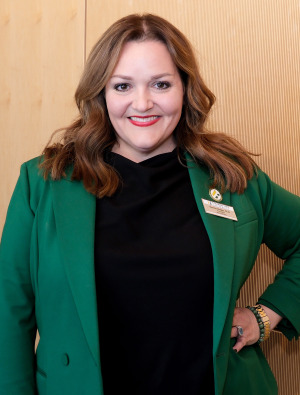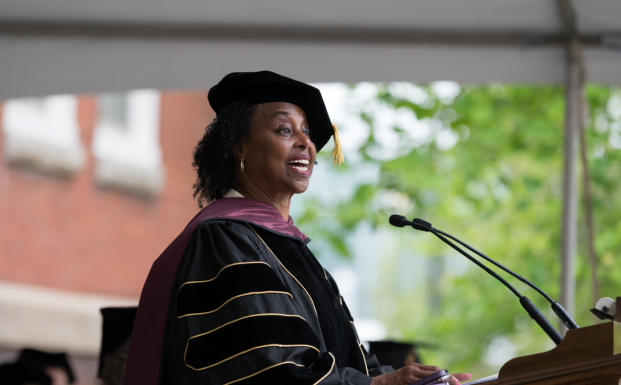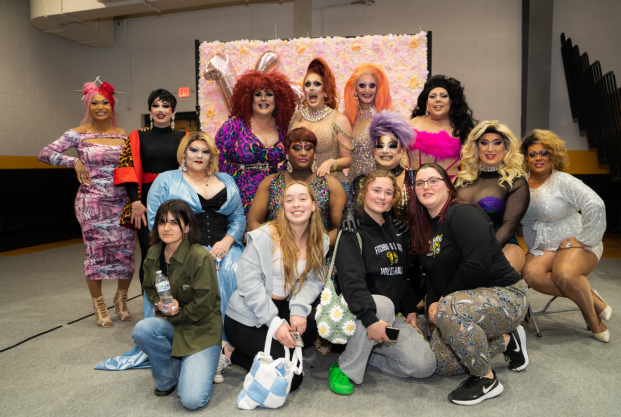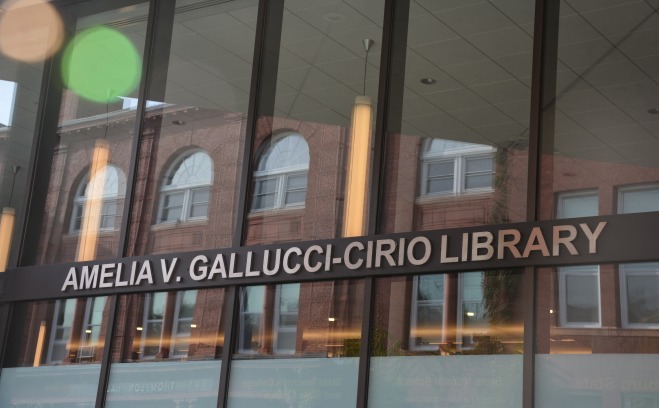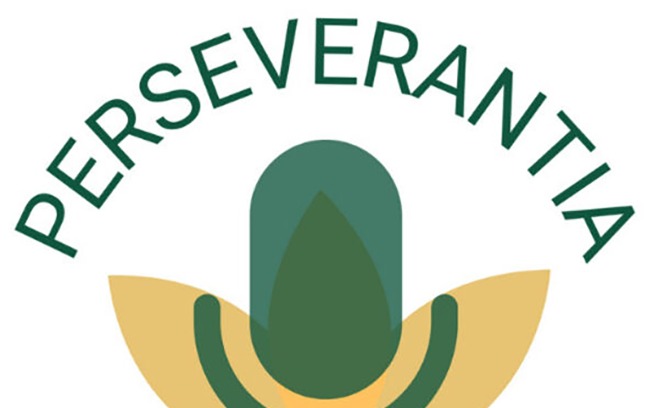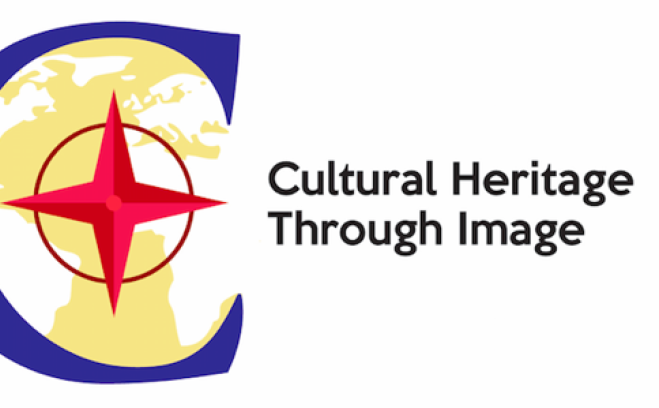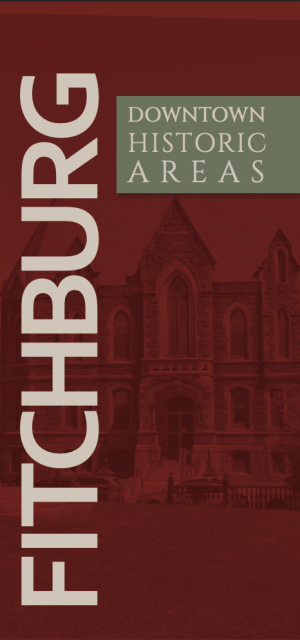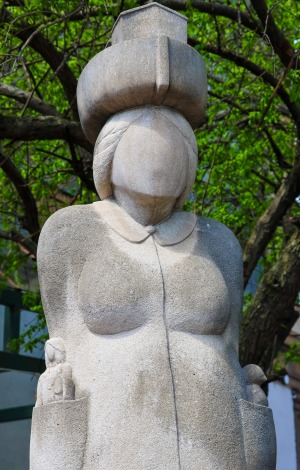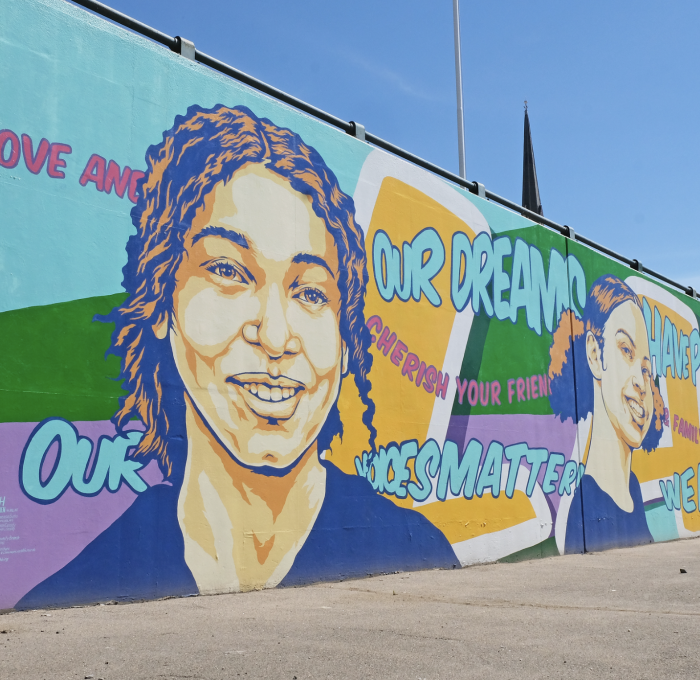
Did you know?
You share the heritage of a city and a university of…
- Activists
- Innovators and influencers
- Teachers and thinkers
- Artists and creators
- And so much more!
Above Mural, "Launch" by Jon Allen (Fitchburg State alum '12), Jennessa Burks, and Keenan Cassidy ("Bringing Art to Everyone")
Fitchburg Firsts
First woman president of Fitchburg State (2024-Present): Dr. Donna Hodge (12th President of Fitchburg State; Ph.D. in Rhetoric, Master's in English and Women's Studies)
First woman academic dean at Fitchburg State (1956-1966): Dr. Helen Beaumont Ross Russell (Environmental biologist, author, illustrator, educator)
First known Black student at Fitchburg State: John "Jack" Stewart Laws (Attended Fitchburg Normal School and graduated in 1927) “Jack is one of the many boys from Worcester attending Normal School. Although always a good sport Jack does not let fun interfere with his achievements. He has been an earnest and conscientious student in the two years we have known him. Jack will leave F.N.S. [Fitchburg Normal School] with the sincere wishes for the best of luck from his classmates.” - The Saxifrage Yearbook, 1927
Listen! Sele Bridgeforth ('27) in "The Mystery of Our First Black Student," Perseverantia Podcast Fitchburg Your Story
Series (Season 4, Episode 12)
First mass-produced Black superhero action figure: Sun-Man created in 1985 by alum/founder of Olmec Toy Co. Yla Eason (‘71)
First Annual Fitchburg State Gay-Straight Alliance Drag Show (2005): New England's largest and oldest drag show, proceeds benefit school's Gay-Straight Alliance LGBTQ+ scholarship.
Landmark case setting precedent for First Amendment rights of student newspapers: Antonelli v. Hammond Supreme Court Case in 1970 "The editor of the student newspaper at Fitchburg State College, John Antonelli, successfully sued the college president after the president refused to pay to print future editions of The Cycle [now The Point] unless he or someone he appointed approved the paper first....The court struck down the president’s prior review policy as unconstitutional, noting the importance of fostering free and open discussion in the university setting." - SPLC, “Antonelli v. Hammond”
First established vocational education program in the country: Did you know that what we now call "vocational education" started in Fitchburg in 1908 by Calvin Woodward, educator and professor, and was called "The Fitchburg Plan"?
Learn about our university
Perseverantia: A Fitchburg State University Podcast Network
Series of episodes in the network:
- Perspectives
- Perseverantia Student Spotlight
- Getting to the Point
- FalconCast
- Classroom Stories
- Special Series
Explore the City of Fitchburg
- Abolitionist Park
- "A Walk Through Time" - Fitchburg's Rock Walk
- “Fitchburg Downtown Historic Areas" Brochure and Map
- Fitchburg Historical Society “I Remember When” FATV Series
- Fitchburg Historical Society Online Collections Database
- Fitchburg Historic Districts Walking Tour
- Fitchburg Public Art and Map
- Freedom’s Way National Heritage Area (filter for Fitchburg on the left)
- History of the Arts in Fitchburg Walking Tour
- Medical History in Fitchburg
- Steamline Park Trail
Fitchburg’s Diverse Perspectives
Sculpture “The Immigrant” (by Nora Valdez), 423 Main St.
“A well-known Boston artist and educator, Nora Valdez’s stone sculptures are exhibited internationally. Her public sculpture ‘The Immigrant’ focuses on the many struggles of an immigrant and ‘the feeling of being from here, there, and nowhere; the constant feeling of drifting without ever finding a place to call home.’ Such a work is most appropriate for Fitchburg, a city shaped by successive waves of immigration.” (Fitchburg Art Museum, “Nora Valdez, The Immigrant”)
- Abolitionist Park
- African-American History
- Cleghorn, Fitchburg's "Little Quebec"
- Disability Heritage
- Finnish-American Collection
- Finnish Center at Saima Park
- Greek Festival
- Jewish Community
- Women’s History
Want to Teach with Fitchburg Heritage?
Start here with a database of Fitchburg Cultural Heritage Teaching Resources. These resources are organized by a wide variety of subjects and include description notes and links for more information.
If you are interested in teaching about cultural heritage more broadly or would like examples of New England heritage more specifically, including that of Fitchburg, check out the open access textbook by Dr. Kisha G. Tracy (Professor, English Studies) entitled Heritages of Change: Curatorial Activism and First-Year Writing, published through the Remixing Open Textbooks through an Equity Lens Project.
